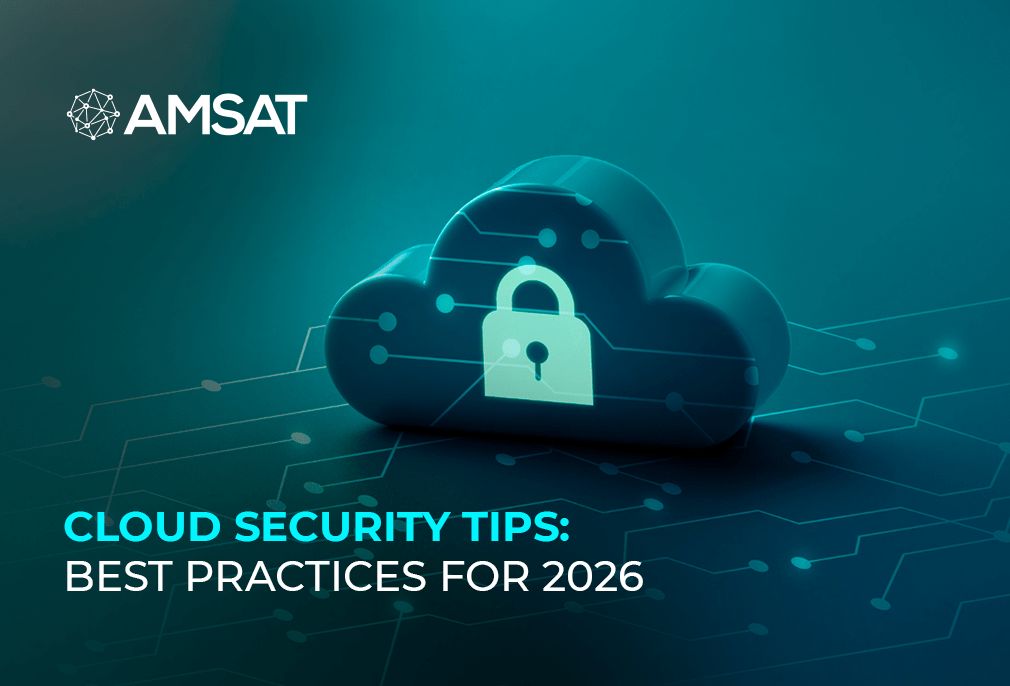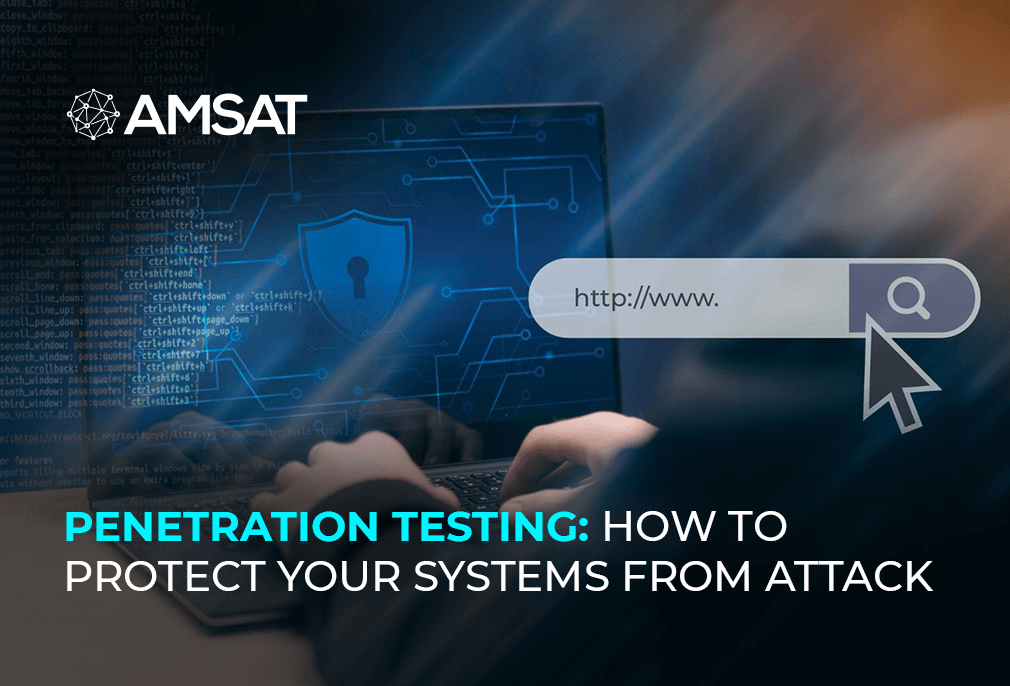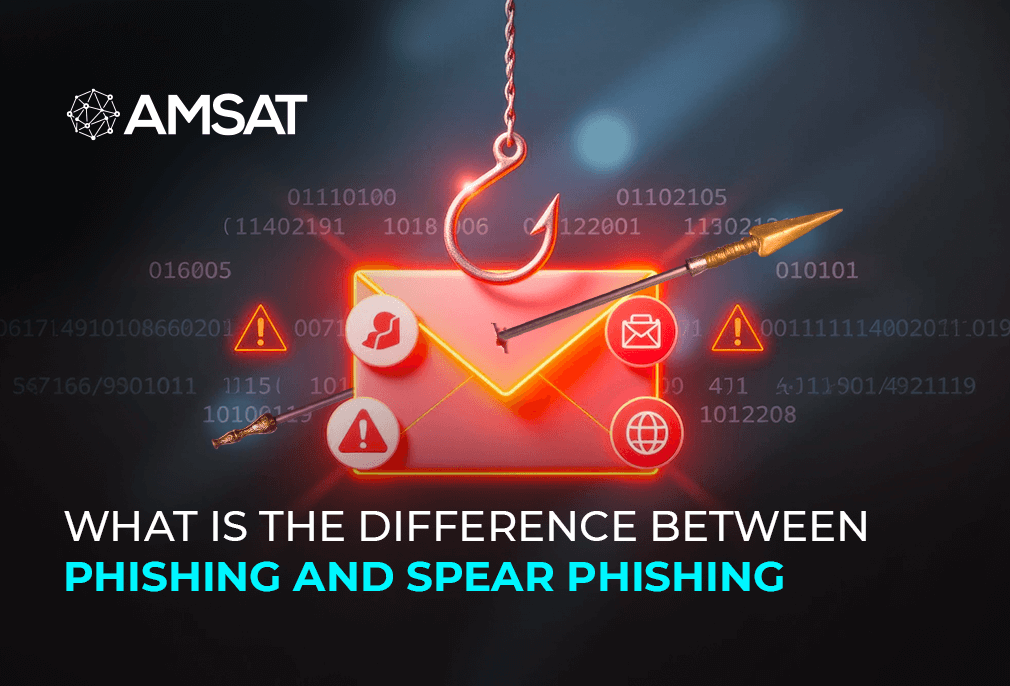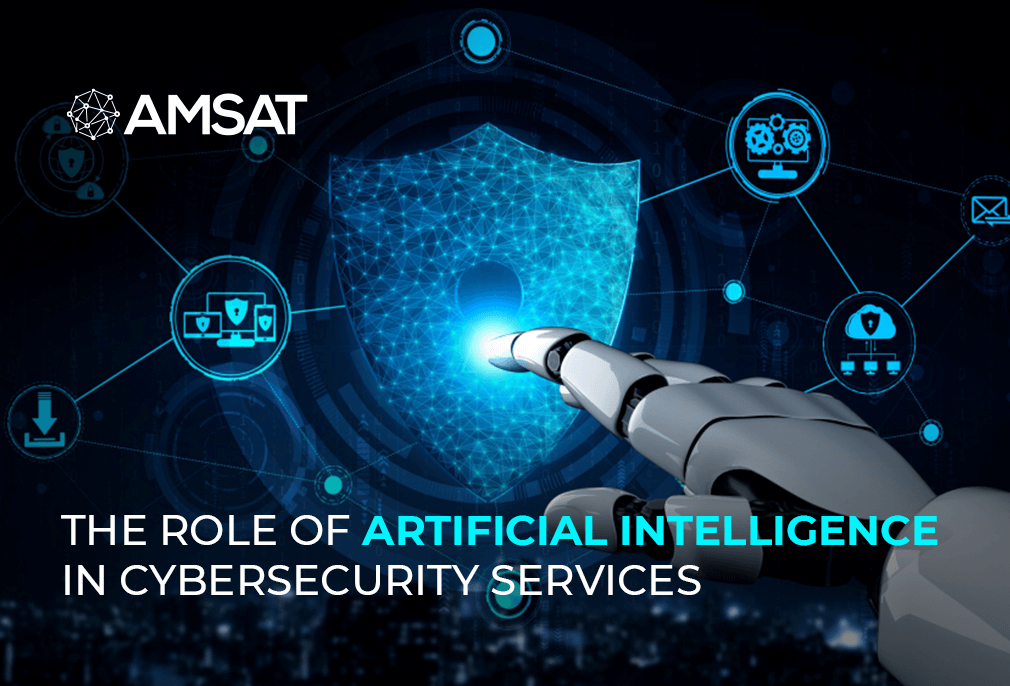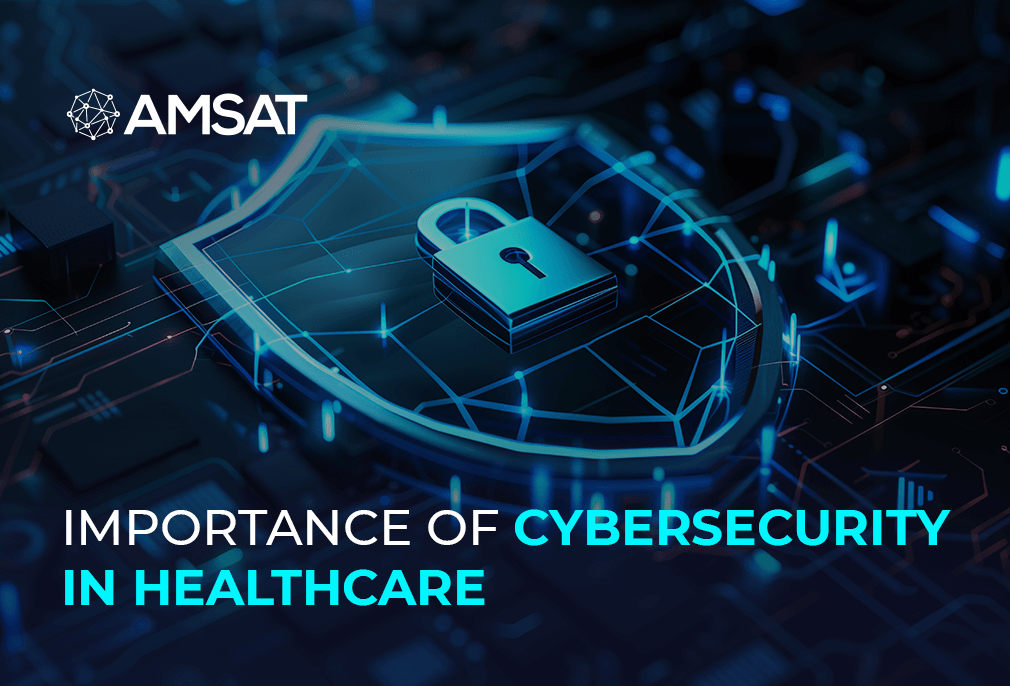Latest Blogs
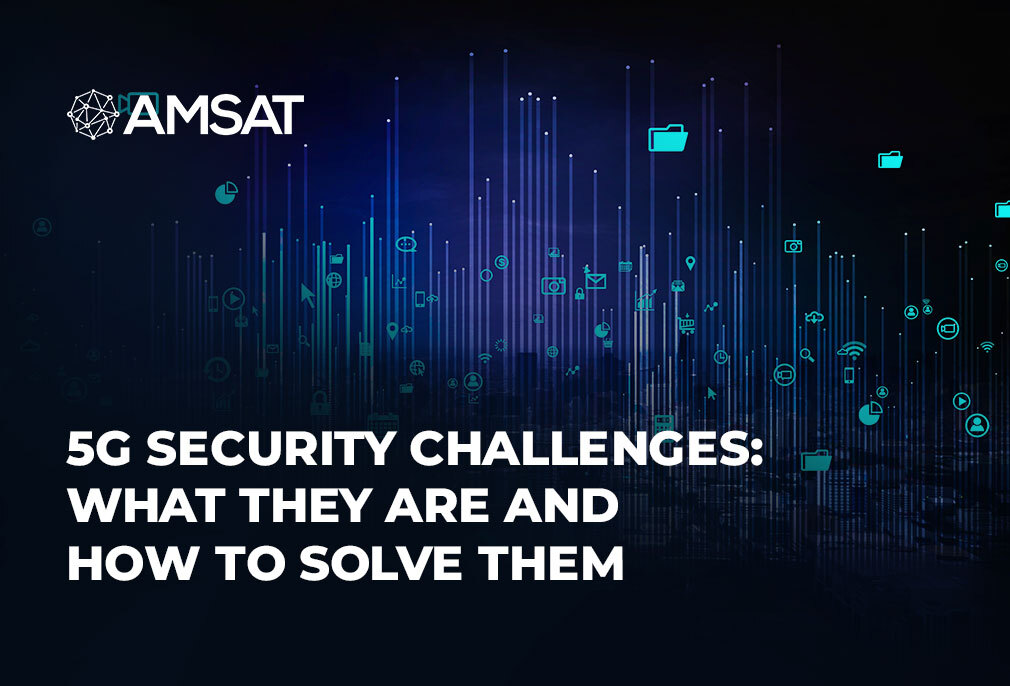
By AMSAT Oct 31,2022
5G Security Challenges: What They Are and How to Solve Them
5G is the newest mobile data transmission standard. While it will help improve speeds, it will also enable new cutting-edge forms of data transmission that were unheard of earlier. In order for businesses to benefit from 5G, a more fundamental readjustment must occur rather than merely looking to the technology for faster downloads.
This blog will discuss how 5G will change our way of communication, what industries it will affect, and how to get ready for (and protect against) any future security threats.
What 5G Will Do to Communication
Although not all at once, 5G will make communications between devices faster, significantly more scalable, and have much reduced latency. In general, 5G uses the low, mid, and high frequency bands. Low-bandwidth wireless communication gives slow but wide coverage, making it perfect for rural locations.
Mid-bandwidth, also known as eMBB, or enhanced mobile broadband, offers faster connectivity speeds than 4G at close range. This is suitable for the majority of electronic devices used by business personnel. Moreover, mMTC, or huge machine-type communications, is made possible by mid-bandwidth connectivity. As a result, a large number of Internet of Things (IoT) devices can rely on 5G in a small area without taxing the network’s infrastructure.
The most intriguing element that 5G brings about is probably high-bandwidth connectivity. This makes ultra-reliable, low-latency communications possible. In addition to enabling speedy communication between self-driving cars, this type of connection’s exceptionally low latency can enable remote procedures for medical experts who previously could not rely on mobile technology.
The Effects of 5G on Business
Faster data speeds will be beneficial for every company, but there are several particular industries where 5G will have a dramatic impact. Everyone working in these fields has to be aware of 5G’s potential as soon as possible so they can put it into practice.
5G will immediately have an impact on industries that rely on field employees executing remote operations for extended periods of time. Faster data rates will enable quicker communication between employees and management, enhancing the productivity and safety of frontline personnel. Roles in the field service sector like repair technicians and sectors like manufacturing that rely on physically demanding warehouse work may be impacted by this.
The healthcare industry will be particularly transformed by low latency. Surgeons should be able to do surgery remotely with no loss of control once they have access to low-latency 8K video feeds of a surgical site, equivalent to in-person surgeries. Additionally, 5G will provide a smoother and faster connection for any of the millions of patients who have used telehealth services throughout the pandemic, ensuring that visits go as planned.
High-bandwidth cell towers will change the transportation industry despite having a very small coverage area. Through the usage of URLLC, self-driving cars may quickly transmit and receive information from other vehicles, making their use safer than before.
Challenges of 5G Technology for Security
The advantages that 5G offers inevitably come with a few major security issues. For instance, since more data is transmitted in a given length of time on 5G networks, data exfiltration attempts by thieves are more lucrative. Because employees who have full control over their devices can download malware more quickly than before, organizations have no room for careless device use.
Connection stability is a necessity as low-latency communications grow more and more important. In the case of surgery or remote driving, URLLC interruption (either intentional or accidental) could be fatal.
Businesses may automate numerous crucial operations as more and more gadgets communicate with one another. Automation, however, makes existing organizational weaknesses worse. Automation eliminates the possibility that someone will detect a significant problem while on the job in person if an organization has “blind spots” that no one is responsible for resolving.
The majority of businesses implementing 5G will also require a sizable amount of new hardware. The vast amount of equipment needed will make this a logistical difficulty because it will take a while to put everything up. This may lead to casual errors that are difficult to spot after the fact, and these oversights may later result in significant problems.
Additionally, a lot of networks are currently switching from 4G to 5G. As a result, for as long as the upgrade process takes, 4G network vulnerabilities will persist in 5G networks.
How to Address 5G Security Issues
The new technology doesn’t fundamentally alter what companies must do to safeguard their assets, but it significantly reduces the margin for mistake and raises the costs of failure. No matter if a gadget uses 4G or 5G, it’s crucial to limit what users may do with company-owned devices. Additionally, it’s crucial to conduct a proof-of-concept before introducing a large number of IoT devices into an office.
Additionally, you must examine the people infrastructure of your business because organizational “blind spots” are a bad actor’s fantasy when it comes to data exfiltration and similar activities. Considering that 4G-related vulnerabilities may still affect older systems and networks, you should keep an eye on them.
It’s critical to manage 5G devices in this way as soon as they are compatible with mobile device management software in order to keep them secure. You should choose a device management system that can scale with your organization’s needs in order to protect the devices that will make use of 5G technology. You should seek out a solution that places a strong emphasis on IoT management in particular.
Although it can be upsetting, be aware that if your company is located in a remote region, 5G coverage might not be very good. It’s crucial to adjust your expectations in accordance with the level of 5G access you’re going to receive.
Conclusion
It’s critical to realize that 5G represents an important change for many businesses rather than merely an incremental improvement. Companies can position themselves to become industry leaders in this era by investing the time in securing 5G infrastructures.
TAGS
- Cyber Crime
- Security Updates
Recent Blogs
Ready to Get Started?
Our specialists are ready to tailor our security service solutions to fit the needs of your organization.
